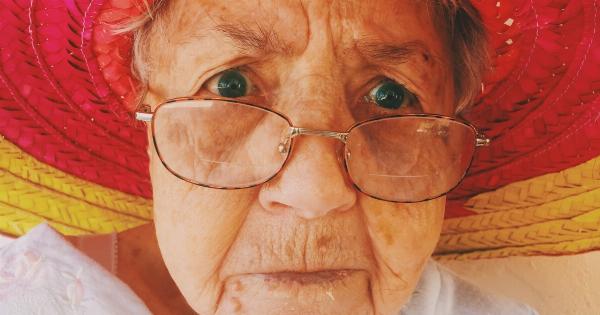Smoking is one of the leading causes of death worldwide. According to WHO, smoking causes more than 8 million deaths every year.
When you smoke cigarettes, you inhale harmful chemicals, including tar, carbon monoxide, and nicotine, which can damage your health in many ways. Quitting smoking is not easy, but it is one of the most important things you can do for your health and wellbeing. In this article, we will discuss how quitting smoking helps you and who can help you do it.
Effects of Smoking on Health
Smoking harms nearly every organ in your body, and it affects your overall health in many ways. Here are some of the negative effects of smoking:.
- Causes cancer: Smoking is the leading cause of cancer, including lung cancer, throat cancer, mouth cancer, esophageal cancer, pancreatic cancer, and bladder cancer.
- Heart disease: Smoking increases the risk of heart disease, which is one of the top causes of death globally.
- COPD: Smoking is the main cause of chronic obstructive pulmonary disease (COPD), a lung disease that makes it hard to breathe.
- Stroke: Smoking increases the risk of stroke, which can lead to long-term disability or death.
- Poor oral health: Smoking can lead to dental problems, including tooth decay, bad breath, and gum disease.
- Poor reproductive health: Smoking can affect fertility and increase the risk of miscarriage, premature birth, and low birth weight.
Benefits of Quitting Smoking
Quitting smoking can immediately improve your health and quality of life. Here are some of the benefits of quitting smoking:.
- Reduced risk of cancer: When you quit smoking, your risk of developing cancer decreases over time.
- Better breathing: Quitting smoking can improve your lung function and reduce the risk of lung disease.
- Better heart health: Quitting smoking can reduce the risk of heart attack and stroke.
- Improved oral health: Quitting smoking can reduce the risk of gum disease, tooth loss, and bad breath.
- Better skin: Smoking can cause premature wrinkles and skin damage, while quitting smoking can improve the look of your skin.
- Improved fertility: Quitting smoking can increase fertility and improve the chances of a healthy pregnancy.
Strategies for Quitting Smoking
Quitting smoking is not easy, but there are many strategies that can help you. Here are some of the most effective strategies for quitting smoking:.
Nicotine Replacement Therapy
Nicotine replacement therapy (NRT) is a type of medication that can help reduce withdrawal symptoms and cravings when you quit smoking. NRT comes in many forms, including nicotine gum, patches, inhalers, lozenges, and sprays.
These products can help you gradually reduce your nicotine intake and increase your chances of successful quitting.
Behavioral Therapy
Behavioral therapy can help you identify and change the behaviors that trigger your smoking and develop new coping skills. Behavioral therapy can also help you deal with cravings, stress, and other challenges that come with quitting smoking.
Types of behavioral therapy for quitting smoking include individual counseling, group therapy, and telephone counseling.
Medications
There are many prescription medications that can help you quit smoking. These medications can help reduce cravings, withdrawal symptoms, and the pleasurable effects of smoking. Common medications for quitting smoking include bupropion and varenicline.
Support Groups
Support groups can provide you with emotional support, information, and motivation when you quit smoking. Support groups may include people who are going through the same challenges as you and can offer strategies and tips for successful quitting.
Support groups may be in-person or online.
Who Can Help You Quit Smoking
If you want to quit smoking, there are many people and resources that can help you. Here are some of the people who can help you quit smoking:.
Doctor
Your doctor can provide you with information about the health risks of smoking, the benefits of quitting, and available treatments for quitting smoking.
Your doctor can also monitor your health while you quit smoking and prescribe medications or refer you to other professionals as needed.
Nurse
Nurses can offer individual counseling, group therapy, and telephone counseling to help you quit smoking. They can also provide information about healthy habits, coping skills, and support groups.
Pharmacist
Pharmacists can provide information about nicotine replacement therapy, prescription medications, and over-the-counter products that can help you quit smoking. They can also offer advice on how to use these products effectively.
Counselor
Counselors can offer individual counseling, group therapy, and telephone counseling to help you quit smoking. They can also help you identify and change the behaviors that trigger your smoking and develop new coping skills.
Support Groups
Support groups can provide you with emotional support, information, and motivation when you quit smoking. Support groups may include people who are going through the same challenges as you and can offer strategies and tips for successful quitting.
Support groups may be in-person or online.
Conclusion
Quitting smoking is one of the most important things you can do for your health and wellbeing. Smoking harms nearly every organ in your body and can cause cancer, heart disease, COPD, stroke, and other health problems.
Quitting smoking can immediately improve your health and quality of life, including reducing the risk of cancer, improving breathing and heart health, and improving oral health. There are many strategies and resources that can help you quit smoking, including nicotine replacement therapy, behavioral therapy, medications, and support groups.
If you want to quit smoking, talk to your doctor, nurse, pharmacist, counselor, or join a support group to get the help you need.






























